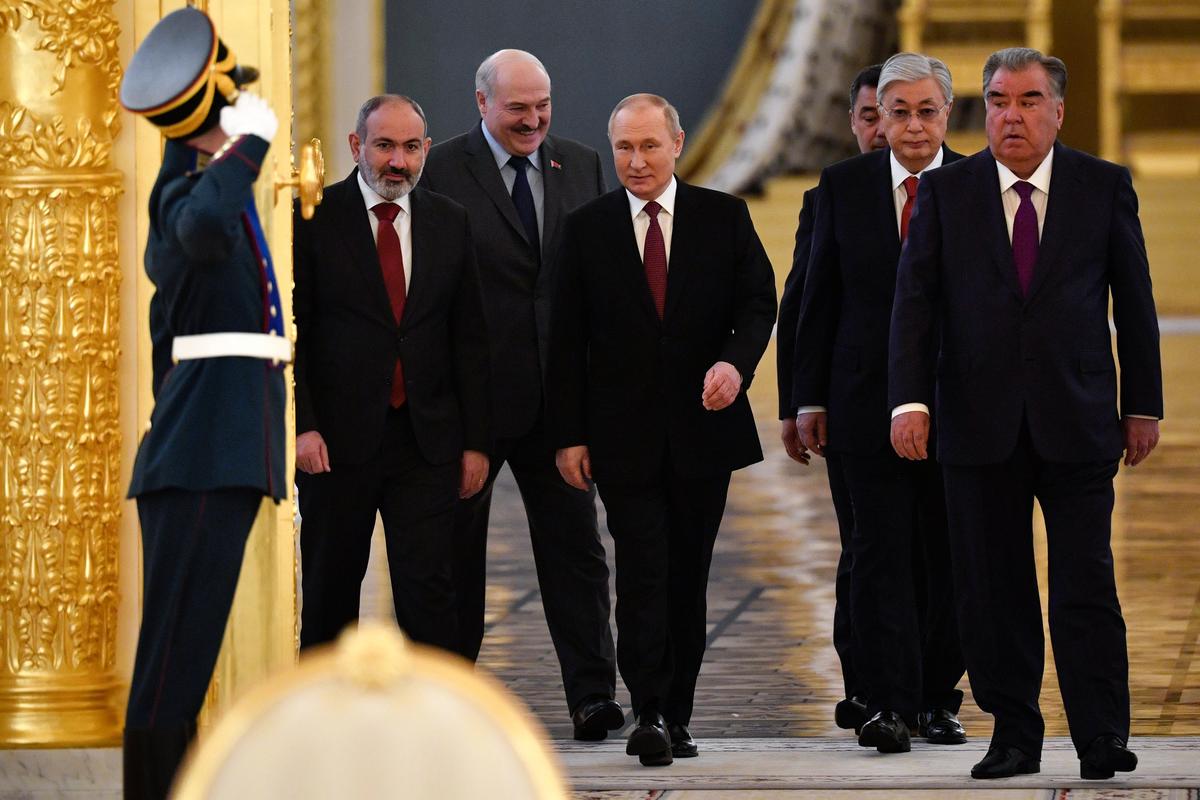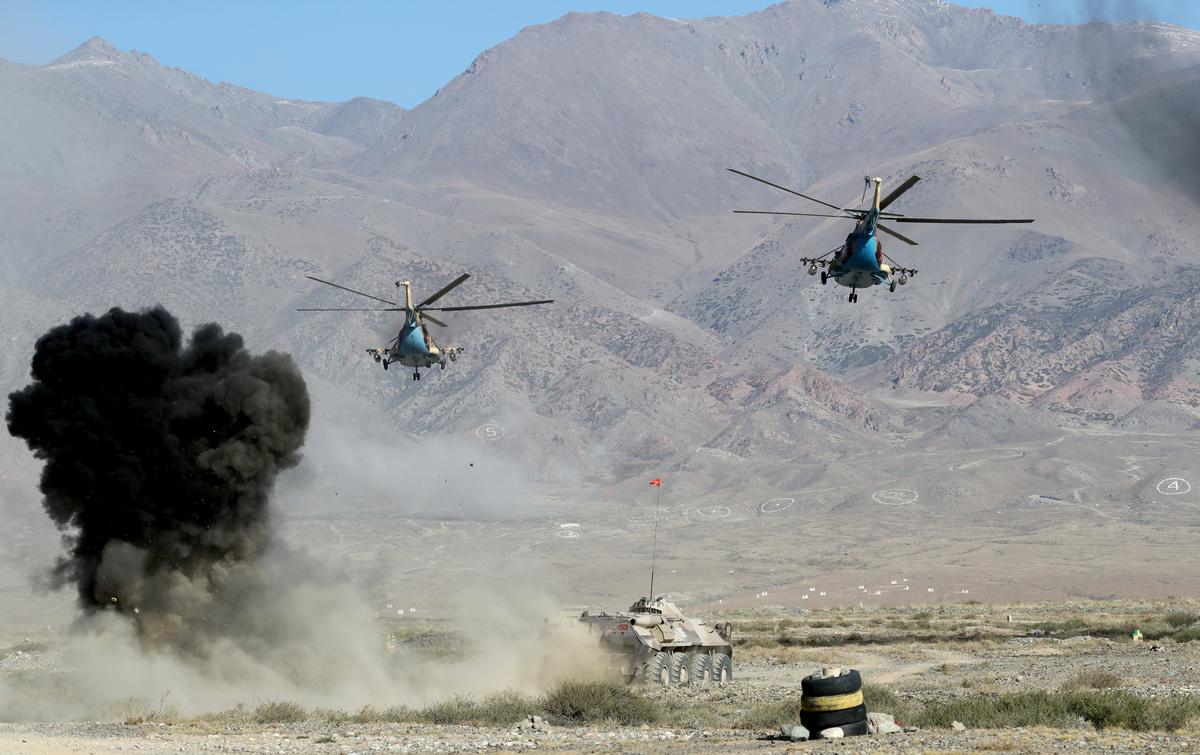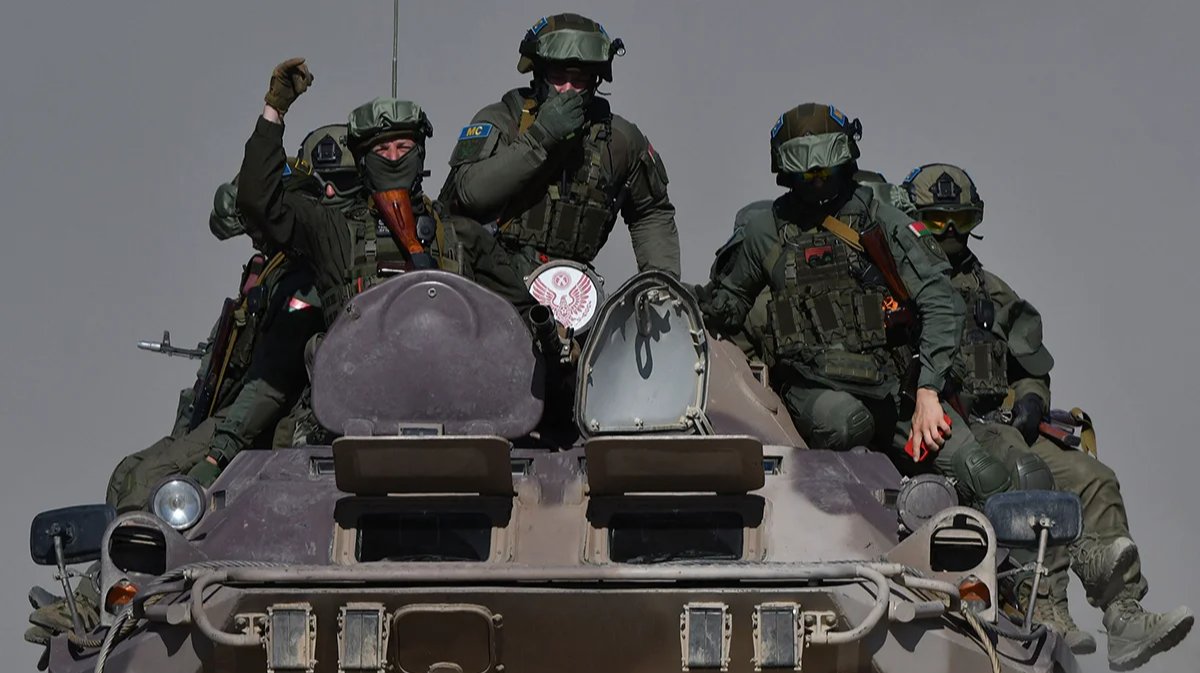The Collective Security Treaty Organisation (CSTO) is due to begin its latest round of military exercises, Cobalt-2024, on Wednesday, and while troops from Russia, Belarus, Kazakhstan, Tajikistan and Kyrgyzstan will all be convening to undertake joint training manoeuvres led by Russia’s National Guard in Western Siberia, one CSTO member, Armenia, will be conspicuous by its absence — the fifth time in a row that the South Caucasus nation has opted to sit out CSTO exercises.
This is not the first time that Armenia has opted out of CSTO training exercises. In autumn 2022 it declined to send a contingent to take part in manoeuvres in Kazakhstan, citing an escalation in its tensions with Azerbaijan. It also refused to host the so-called Indestructible Brotherhood training exercises in Armenia in 2023, calling them “inexpedient”, with Armenian Prime Minister Nikol Pashinyan even saying at the time that Russia’s military presence in Armenia could pose a threat to the country.
Claiming that its soldiers were otherwise engaged, nor did Armenia take part in the Cliff-2023 exercises held in Belarus last year, in which the various parties who attended simulated a cleanup following a nuclear accident.
Armenia suspended its participation in the CSTO altogether in February, though stopped short of officially leaving the organisation. Pashinyan conceded that an Armenian exit from the pact would be the logical next step, citing the failure of its fellow alliance members to come to Yerevan’s aid when Azerbaijani forces retook the disputed region of Nagorno-Karabakh in 2023.
Armenia has long followed a policy of distancing itself from participation in the CSTO, one expert who asked not to be named told Novaya Europe. “Will the CSTO suffer from this? I’m not sure, because I simply don’t understand the point of it anymore: the function set out in its charter is not required at present, and the organisation cannot follow its declared policy of protecting its members from external aggression,” he said.
Allies by default
Political analyst Arkady Dubnov recently wondered aloud in his Telegram channel whether Russia might appeal to its fellow CSTO members for assistance following an incursion into its southwestern Kursk region by the Armed Forces of Ukraine. The acting governor of the Kursk region said on Monday that 12 civilians had been killed and a further 121 wounded in the now week-long Ukrainian incursion, a situation that more than meets the conditions under which member states can request the deployment of peacekeeping forces under the CSTO charter.
The CSTO has often been derided as an alliance on the brink of death, but Temur Umarov, a fellow at the Carnegie Russia Eurasia Centre in Berlin told Novaya Europe that he believed that many people confuse its officially declared function to its actual one.

The leaders of Armenia, Belarus, Russia, Kyrgyzstan, Kazakhstan and Tajikistan at a CSTO summit at the Kremlin in Moscow, 16 May 2022. Photo: EPA-EFE / ALEXANDER NEMENOV
“The declared function is that the CSTO does indeed ensure collective security for all countries belonging to the organisation. Russia thus spreads its security umbrella over the countries that are part of the CSTO. But in reality, the CSTO’s umbrella does not cover absolutely everything. If you are a member of the CSTO, this doesn’t mean that the organisation will provide you with assistance on all issues.”
In fact, according to Umarov, the principal role of the CSTO is to ensure the safety of political regimes, as was demonstrated by the alliance’s deployment of troops to Kazakhstan in January 2022, as the country was rocked by anti-government protests.
“At that time everyone started saying that the CSTO really was capable of doing something. It revealed that it doesn’t provide full security guarantees for each country’s national interests, but only ensures the stability of its political regime.”
The principal role of the CSTO is to ensure the safety of political regimes, as was demonstrated by the alliance’s deployment of troops to Kazakhstan in January 2022.
“Reputation is in the eye of the beholder,” according to Umarov, who pointed out that “the leaders of CSTO member countries consider it to be an effective organisation which helps to ensure safer conditions in their regions”.
“They believe that the CSTO is a functioning mechanism, and this is borne out by the fact that member countries have appealed to the organisation several times for assistance in stabilising a certain situation,” Umarov said.
Sole deployment
On 17 September 2022, for instance, alliance members Kyrgyzstan and Tajikistan accused each other of violating ceasefire conditions, shelling each other’s territory and carrying out provocations, but following a CSTO statement urging both sides to resolve the conflict “at the negotiating table by peaceful means”, Bishkek and Dushanbe swiftly reached an agreement that ended the cross-border hostilities.
The only time in the CSTO’s two-decade history that it deployed troops following a request by one of its members for assistance was in 2022, when protests broke out in Kazakhstan over the price of fuel, swiftly becoming anti-government in nature.

The CSTO’s Indestructible Brotherhood military exercises in Balykchy, Kyrgyzstan, 11 October 2023. Photo: EPA-EFE / IGOR KOVALENKO
Mass protests in Kazakhstan began on 4 January 2022 over a rise in gas prices, but they rapidly transformed into demands for the resignation of Kazakh President Kassym-Jomart Tokayev and the removal of the ubiquitous statues of former Kazakh president Nursultan Nazarbaev. Within days demonstrations had spread, including to the country’s largest city, Almaty. According to official reports, 238 people were killed during the protests and disturbances, six of them from torture in detention facilities.
At the request of the embattled Tokayev, the CSTO quickly deployed troops it referred to as “peacekeepers” to Kazakhstan on 6 January, officially for “the stabilisation and normalisation of the situation”, the first time it had ever done so as an organisation. Previous requests for military intervention made by Kyrgyzstan in 2010 and Armenia in 2021 were both rejected. The operation continued until 15 January.
However, the CSTO training exercises are now essentially the only thing that the organisation does. None of its members has publicly expressed support for Russia’s war in Ukraine, either, which also serves to underscore how little ideological unity the nominal allies in the CSTO can ever realistically hope to have, and how little political weight the body will ever be able to exert.
Join us in rebuilding Novaya Gazeta Europe
The Russian government has banned independent media. We were forced to leave our country in order to keep doing our job, telling our readers about what is going on Russia, Ukraine and Europe.
We will continue fighting against warfare and dictatorship. We believe that freedom of speech is the most efficient antidote against tyranny. Support us financially to help us fight for peace and freedom.
By clicking the Support button, you agree to the processing of your personal data.
To cancel a regular donation, please write to [email protected]

